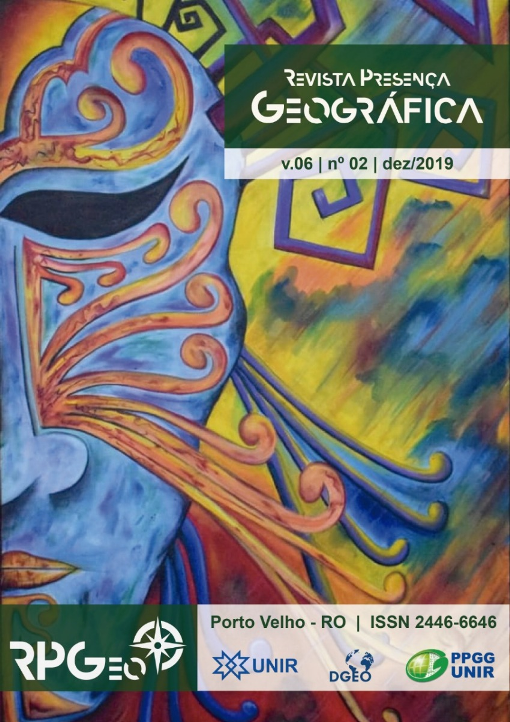FLORESTAS CULTURAIS: UMA LEGÍTIMA CONCILIAÇÃO ENTRE HOMEM E NATUREZA
DOI:
https://doi.org/10.36026/rpgeo.v6i2.4339Palavras-chave:
Povos Tradicionais, Florestas Culturais, Sistemas AgroflorestaisResumo
O presente artigo tem como objetivo analisar a relevância dos povos tradicionais em sua relação com a natureza, destacando os seus saberes ambientais e a sustentabilidade de suas práticas, haja vista a necessária inversão das práticas degradantes de uso do solo, baseadas em monoculturas extensivas e no agronegócio. Para tal, buscou-se a priori destacar os instrumentos legais de reconhecimento e garantias aos povos tradicionais, bem como elucidar as florestas culturais como promotoras da conservação dos recursos naturais e os conhecimentos tradicionais desses povos por meio da etnociência. Neste sentido, destacam-se as práticas de manejo sustentáveis, notadamente os Sistemas Agroflorestais (SAF), que se mostram como uma alternativa sustentável de produção, além de estimular o resgate e a reconciliação do homem com a natureza que o cerca.
Publicado
Edição
Seção
Licença
Este obra está licenciado com uma Licença Creative Commons Atribuição-NãoComercial-SemDerivações 4.0 Internacional.
Autores que publicam nesta revista concordam com os seguintes termos:
- Autores mantém os direitos autorais e concedem à revista o direito de primeira publicação, com o trabalho simultaneamente licenciado sob a Creative Commons Atribuição-NãoComercial-SemDerivações 4.0 Internacional que permite o compartilhamento do trabalho com reconhecimento da autoria e publicação inicial nesta revista.
- Autores têm autorização para assumir contratos adicionais separadamente, para distribuição não-exclusiva da versão do trabalho publicada nesta revista (ex.: publicar em repositório institucional ou como capítulo de livro), com reconhecimento de autoria e publicação inicial nesta revista.
- Autores têm permissão e são estimulados a publicar e distribuir seu trabalho online (ex.: em repositórios institucionais ou na sua página pessoal) a qualquer ponto antes ou durante o processo editorial, já que isso pode gerar alterações produtivas, bem como aumentar o impacto e a citação do trabalho publicado (Veja O Efeito do Acesso Livre).







